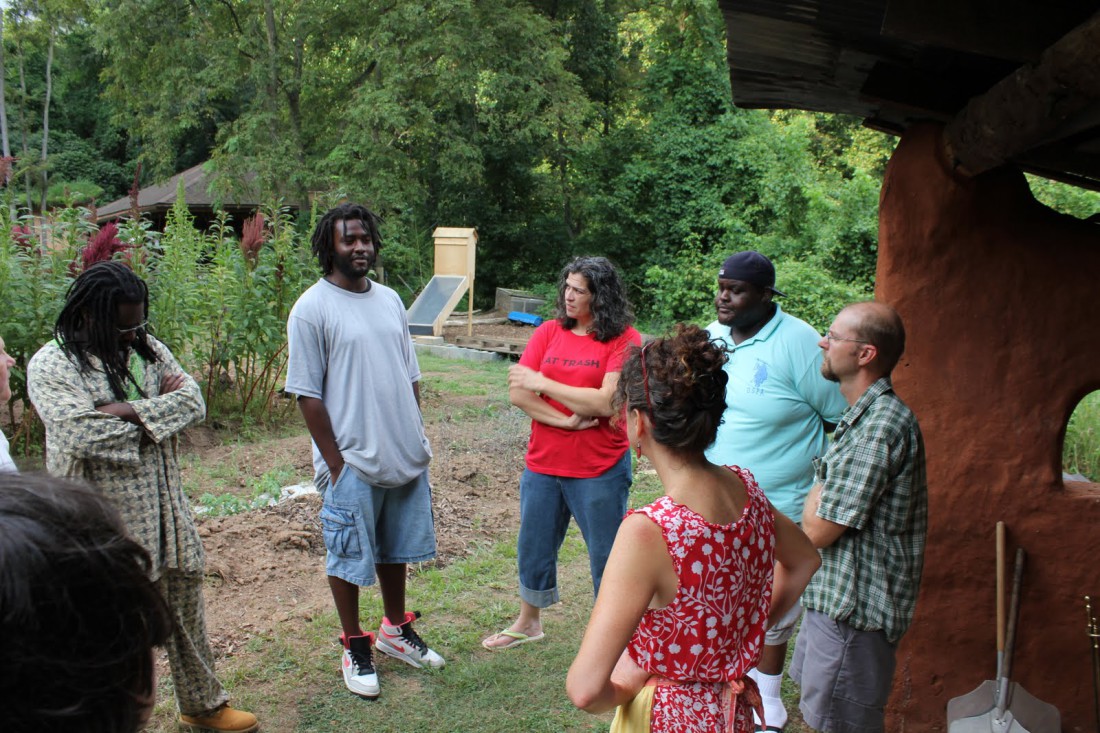The North Carolina Community Garden Partners will host their annual statewide conference, Growing Garden Connections, in Asheville on Oct. 25 at UNC Asheville’s Sherrill Center. Darcel Eddins of Bountiful Cities, one of the conference’s speakers, provides Xpress with a preview of what participants can expect.
Mountain Xpress: Tell us about the mission of Bountiful Cities.
Eddins: Bountiful Cities has been an urban agricultural resource in Asheville for 14 years. We share agriculture skills and resources to promote social justice and economic viability. We envision abundant food sovereign communities.
Can you give us a summary of the issues you’ll be discussing during your presentation at the conference?
I’m presenting on the idea of the collective impact framework. The collective impact framework examines the work we do as organizations, and seeks to parse out individual organizational missions to better use community resources and to reduce competition between the organizations — all while valuing all the work that is being done to better serve the community.
[The framework] moves beyond a focus on financial resources and looks at how we can look at the whole of the resources that we utilize in order to better serve the community with those limited resources. Essentially, how do we figure out how to work more deeply with other organizations so we can create “win-win” scenarios for the organizations and the communities to work with?
In addition, this type of collaboration helps funders avoid the difficult decisions of choosing between organizations by showing how our organizations can work together to have a collective impact. Collective impact allows organizations to focus on the quality of the programs they offer rather than the quantity, all while including the community in the discussion.
Who do you expect to attend the conference?
We are the North Carolina Community Garden Partners so it tends to focus on community gardens, but it could also be a valuable experience for policy people or health care practitioners. It doesn’t have to be narrowly focused on community gardens; it could be educational for individuals or community associations interested in community gardens. It’s also a useful experience for funders as well. We’re stronger when we network together as a community rather than just trying to figure out how to sustain our own garden.
What are you most looking forward to at the conference?
I’m looking forward to the opening panel, which is a group of people who are talking about the elements that work and don’t work. It’s a really diverse group of people on the panel. I’m excited about that diversity because we often just often host events at institutions and get people from the intuitions to present; for this panel we have both, and they have experiences working to start and sustain gardens.
There is also a panel about community and community gardens. I think a lot of times we focus on the garden and forget about the community we are operating in and the relationship we have with it. Ultimately, it’s all about the relationships and our successes. I’m also pretty excited about the collective impact panel because I feel like it’s an important framework through which to view our work as organizations.
What do you think growers and community organizers from throughout the state can learn from Asheville?
I think we have a lot of things going on in Asheville, but I think we can learn wherever the conference is located. I don’t think there is anything unique Asheville is doing around urban agriculture, and actually there is some impressive work happening in other parts of the state and outside of the state. I think you learn at any conference because of the collaboration. Asheville offers a unique growing environment being in Western North Carolina that other gardens can observe.



Before you comment
The comments section is here to provide a platform for civil dialogue on the issues we face together as a local community. Xpress is committed to offering this platform for all voices, but when the tone of the discussion gets nasty or strays off topic, we believe many people choose not to participate. Xpress editors are determined to moderate comments to ensure a constructive interchange is maintained. All comments judged not to be in keeping with the spirit of civil discourse will be removed and repeat violators will be banned. See here for our terms of service. Thank you for being part of this effort to promote respectful discussion.